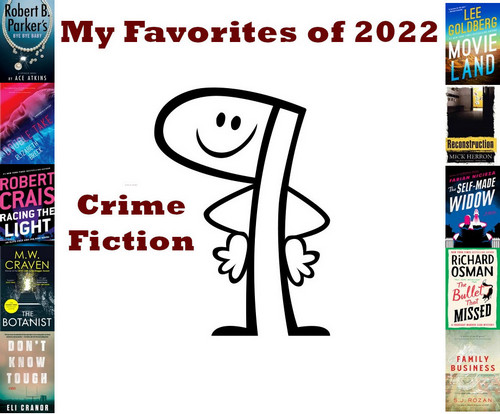
I read 114 books I put in the category of “Mystery/Detective Fiction/Crime Fiction/Thriller” last year (and there are a couple of multi-genre novels that could beef that number up a bit), so I have to consider it apart from everything else when I put together my Favorites Lists, or just about everything else would get ignored. Even if I went with a Top 15-20 instead of a Favorite 10, maybe 2-3 books from the previous lists would’ve made it along with all of these.
I had a hard time writing up this post—not because I had a hard time picking the list this year (thankfully). Partially because I’m tired of doing these little snippets at this point in the week, but mostly because I want to write a thousand words or so on each one (and probably spend time re-reading huge chunks of each of these books in order to do that properly), so keeping myself to a paragraph or so is really difficult. I ended up borrowing liberally from things I’ve written here and elsewhere just to make sure this list was able to be posted before Feb. 26th.
Once again, I’ll note that I limit my lists to things I read for the first time. I’d be willing to guarantee anyone reading this page will enjoy at least 6 of these (which six will vary from reader to reader, however). I’m tempted to say that all the listed books are guaranteed for everyone, but people’s tastes are too varied, so I’ll hedge my bet. Try these, and you’ll be glad you did.
(in alphabetical order by author)
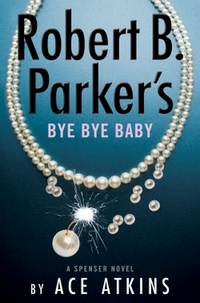 Robert B. Parker’s Bye Bye Baby
Robert B. Parker’s Bye Bye Baby
by Ace Atkins
My original post
It’s really no surprise that Atkins’ final Spenser novel makes this list—Spenser is one of my all-time favorites, and the decade that Atkins spent at the helm included several of the best novels in this long-running series (this is the 50th novel!!). He also helped legions of fans deal with Parker’s death by doing such a capable job. This book evokes some of Parker’s best early novels while remaining wholly original and compelling—true to both authors. It’s a great way for Atkins to go out.

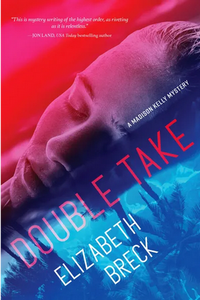 Double Take
Double Take
My original post
In my original post, I said that it felt like Breck wrote this novel for me—I’m not that delusional, but it resonated with me in so many ways that she might as well have. Madison Kelly was one of my favorite discoveries of 2021 and her sophomore adventure solidified my impression of her. Madison’s tough, smart, lucky (and knows how important that is), and committed. Brisk and assured writing. A nice bit of sleuthing to find a pretty clever crime (committed by some people who really shouldn’t ever get into criminal activity—and some who seem born to it). Featuring the kind of ending where you find yourself leaning forward as you read, because somehow that helps you get to what happens next faster; you don’t hear the music/people/animals around you; and your eyes move just too slowly.

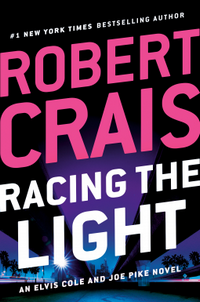 Racing the Light
Racing the Light
by Robert Crais
My original post
We leave one of my newest PI obsessions to go back to one of my oldest—Elvis Cole. This is the best use of this character in years, and I loved every second of it. Like the best Cole novels, it starts as a missing persons case before turning into something far more complicated and deadly. But Cole is able to keep his focus on the victim (while finding justice for the wrongs he encounters). Joe Pike doesn’t get as much “screen time” as he has been lately, which makes every second that he’s around so much more effective—he owns one of the best moments of the book (and barely does anything in it). Racing the Light will no doubt be considered one of the pivotal moments in the series and I can’t wait to see what comes after this point.

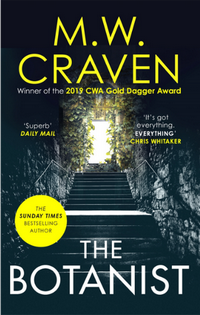 The Botanist
The Botanist
by M.W. Craven
My original post
The last note I made on this novel was, “the last 30 pages made me happier than almost anything else this year.” And thinking back on those pages right now still makes me almost giddy. While Poe and Tilly are vital to the novel—ultimately, this novel is about the secondary characters—victims, suspects, and the killers. The primary case is brilliant on every front—the method of murder, the way that the method is finally discerned by the good guys, and then the way the case is closed? It’s all a thing of beauty (in the dark, warped way that Crime Fiction is to fans of the genre). I’m on the verge of babbling now, so I’m going to leave this and move on to the next novel on the list.

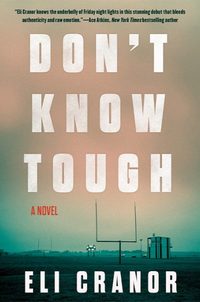 Don’t Know Tough
Don’t Know Tough
by Eli Cranor
My original post
I was blown away by this novel. I read it in May and I’m not convinced I’ve wholly recovered. It’s a story about faith, family, and (American) football. I can’t tell you which is more important to any character in this novel at any point (but I’d lean toward the latter for just about all of them). The prose is gorgeous and visceral, the story is intense and heart-breaking–it’s about a high school coach and a star player trying to keep their heads above water in the middle of a murder they’re both connected to. I can easily sound like I’m over-hyping this, so I’m not going to go on the way I want to. I’ll simply say that Cranor’s work is just gut-wrenching, beautiful, and powerful. And not to be missed.

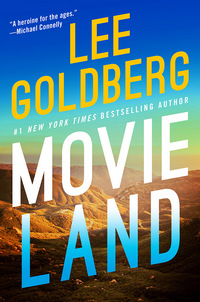 Movieland
Movieland
by Lee Goldberg
My original post
This series started off strong and keeps getting stronger. The overall arc of the series is a rookie detective (who got promoted earlier than she should have) learning how to be a good, maybe great, detective. Eve Ronin makes mistakes, she learns from many of them, but her instincts are on point and she eventually gets her criminals. If she can learn to do it without burning every bridge in sight and unintentionally antagonizing everyone she works with, she’ll get there faster. This is likely the last case her partner will work and he gives it everything he’s got—while imparting every bit of hard-earned wisdom to her as he can—and boy howdy, does he shine here. This is likely the best thing by Goldberg that I’ve read—and I’ve been a fan for a long time.

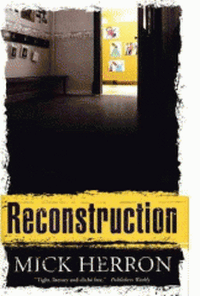 Reconstruction
Reconstruction
by Mick Herron
My original post
Dead Lions by Herron would’ve been on this list, but I don’t let myself use one author more than once, so the spot goes to Reconstruction. Possibly because I spent far more time with this than I do with most books on a first read. Herron got everything right with this book. None of the primary characters are who you think they are at the beginning—most are far worse people than you think (including the ones you have a bad impression of—they’re even worse than you imagine). Which doesn’t stop them all from being some of the best designed and executed characters you’ll run into. The plot is like an onion (or a parfait, to appease Donkey)—you keep peeling back layer after layer after layer until the very end—and each layer is practically perfect and delicious (making it more like a parfait, now that I use that word). The narration is sneakily hilarious and dark. One of my earliest reads of the year and it set the bar high for the next 11 months.

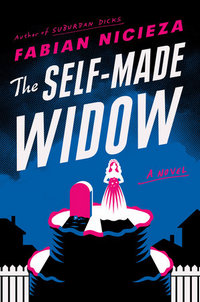 The Self-Made Widow
The Self-Made Widow
My original post
The premise of this sequel is fantastic—what’s a detective to do when they know who the killer is, but they’re not sure how or why the murder was committed. In fact, in the beginning, Andi’s the only one sure the victim was murdered at all. Kenny takes some time out from the documentary he’s making about the events of the previous novel to help Andi out (and hopefully to get another book, documentary, whatever out of it all). Andi’s up against someone as smart as her this time, and it’s going to take more than just Kenny’s help to crack the case. Told in Nicieza’s fantastic style this is a sure-fire winner.

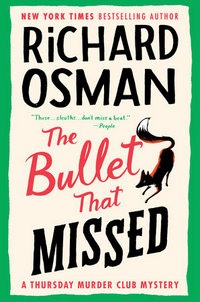 The Bullet That Missed
The Bullet That Missed
My original post
This third book in The Thursday Murder Club series is about two things—the new case the Club decides to look into (mostly so Joyce can meet some local TV personalities) and fallout from the last book–on multiple fronts. As much as I enjoy this series for the lightness and joy it brings—the looming danger that arises as a side effect of their recent success was great. By all means, let’s let things get serious. Elizabeth’s husband, Stephen, steals this novel, however. He shines brighter than ever—and is in worse shape than ever before. This series is ultimately about grief and living in its shadow—that shadow seems larger than ever, and it’s just going to get bigger.

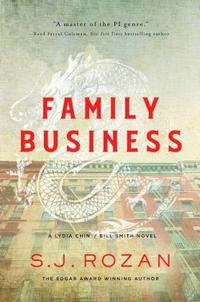 Family Business
Family Business
by S. J. Rozan
My original post
This was the first novel I read in 2022, and it stuck with me throughout the year. I was shocked—and very pleased—by the actions of a long-term character. The narration was as good as Rozan has ever given us. Once again, Rozan takes us into the depths of Chinatown’s Organized Crime and does so in a way that no one expects. Lydia’s at her cleverest when it comes to solving the crime here—even if she might not be that wise when she reveals it. The relationship between Lydia and Bill has taken on new depths, and remains one of the best relationships in detective fiction. Family Business just made me happy from beginning to end.

I want to mention really briefly the books that almost made the list—tied for 11th, I guess you’d say. (fatigue and trying to keep this list from getting too long prevents me from just making my Favorites list long enough to contain them—preventing Reader Fatigue is more important than my own).
 Hell of a Mess by Nick Kolakowski
Hell of a Mess by Nick Kolakowski
 Roses for the Dead by Chris McDonald (the other two parts of this trilogy could easily be substituted for this one)
Roses for the Dead by Chris McDonald (the other two parts of this trilogy could easily be substituted for this one)
 Blood Sugar by Sascha Rothchild
Blood Sugar by Sascha Rothchild
 Jacked, edited by Vern Smith
Jacked, edited by Vern Smith
 Killer Story by Matt Witten
Killer Story by Matt Witten
(links will take you to my original posts about them)
![]()




